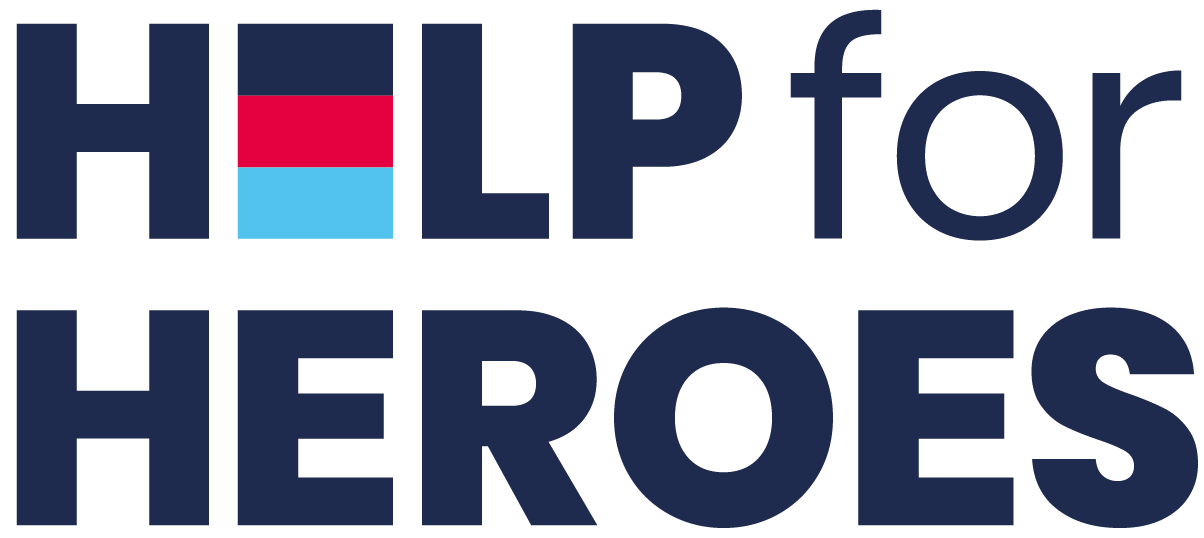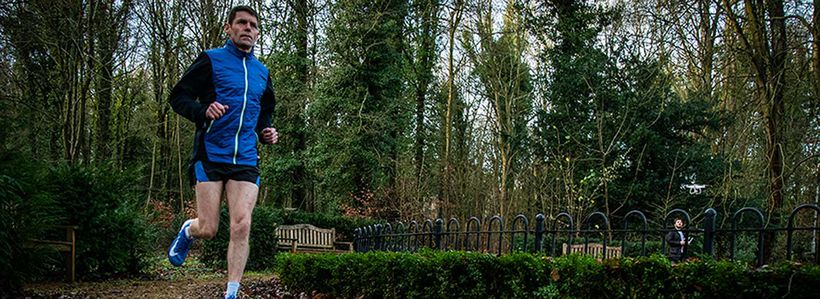Updated on
When John Owens suffered a stroke at the age of 38, coming to terms with it in his mind was tougher than dealing with the effects on his body. His mental health took a hit, yet John felt unable to talk about it and suffered in silence for 18 months.
Eventually, he broke down and in doing so, realised that opening up was the first, brave step in helping him on the road to recovery.
Suffering two strokes
The youngest soldier to serve in the Gulf War aged 17, in his early 20s John Owens suffered a stroke without even realising it. He put a crippling headache and fainting one day down to the effects of a big night out and carried on with his job in the Royal Highland Fusiliers. It was only when, more than a decade later, he ended up in hospital with another intense headache and unable to properly see out of his right eye that the truth became apparent. John had suffered a second stroke, aged just 38, with the scarring caused by the first clear to see on an MRI scan.
It was the second stroke that sent John spiralling into a pit of despair. His physical rehabilitation appeared to go well – with medical support he soon regained the sight in his eye, was able to walk without the crutches he’d been forced onto and returned to work – by now John was a weapons instructor, a position he was proud to hold.
Feeling like a closed book
But the damage that had been done to his mental health was not so easy to fix. Struggling to come to terms with his brain injury, John eventually broke down, 18 months after suffering the second stroke. At the time he was already receiving therapy to help him deal with the effects of the stroke on his memory, but there was a lot that John was holding back. His marriage had begun to suffer, and in his own words, he was a “closed book”, unable to talk about the way he was feeling inside.
“I was a therapist’s nightmare. I’d come in in the morning and say, ‘I’m fine, why am I here?’. But eventually, I broke down. At that point, it was like pushing a reset button. I went all the way back to my childhood – talking about my upbringing, my recovery. At no point had anyone even mentioned the first stroke up until then, but I started to talk about it. I realised I had to come to terms with the fact that there was an issue with my brain and my mental health”.
At this point, John knew that his military career was over. He was medically discharged, diagnosed as suffering with depression, anxiety and Post Traumatic Stress Disorder (PTSD).
“I was stuck in a void, I couldn’t see any way out. My marriage had ended. I was leaving the military. I had no job and no future and I didn’t understand what was going on.”
Coming out of the void
The future looked bleak, but John had taken a first, crucial step towards recovery by opening up to someone. Keen to keep this momentum going, he got in touch with the Help for Heroes Hidden Wounds service, which offers mental health support to Veterans and their loved ones. Attending sessions at the Help for Heroes Recovery Centre, Tedworth House, John initially struggled to make sense of his circumstances. “I’d see amputees and I couldn’t compute as to why I was there. All my limbs were fine and I could see. But eventually, when I realised that I had a neurological disorder and that my brain was not all that great, I reached out a bit further and the support I received was unbelievable.”
Those first steps toward seeking help have since enabled John to pull himself out of his void and see a brighter future. With the right support, and with encouragement to pursue a love of running, John has slowly rebuilt his confidence and his life.
Taking on new challenges
Knowing that physical fitness had a positive impact on his mental health, John signed up for two challenges in 2016 – the Great Scottish Run and Scottish Half Marathon. And at this point he did something he’d never have thought possible before – he talked openly and publicly about his mental health battles. Using social media, John encouraged people to sponsor him to run.
“I went public, letting everyone know who I am, what I’ve been through and most importantly the help I’ve received. I’ve gone from not having the confidence to speak about what I’ve been through to anyone, to being able to talk about it on social media. I have a new outlook and am evolving who I am.”
Keeping focused
There have been ups and downs in his recovery journey. In October 2016, John’s best friend took his own life, and he could feel himself returning to the void. But by putting into practice all he had learnt about himself and his motivations to stay positive, John again turned to running to help him through the pain, winning a place the following year to run in the London Marathon for Help for Heroes.
“Someone once suggested to me that life is like a 400-metre hurdle race. You just keep going and you tick each hurdle off.
“There will always be light at the end of the tunnel and there is always something you can focus on, find that thing and never give up on it.”
According to a survey commissioned by Help for Heroes, 30%* of Veterans with psychological wounds say they have never reached out for support. For those that have, it takes an average of four years before they ask for help.
Help them to come forward sooner and help us to call time on mental health stigma by clicking below:
*Statistics based on a survey commissioned by Help for Heroes, December 2018







